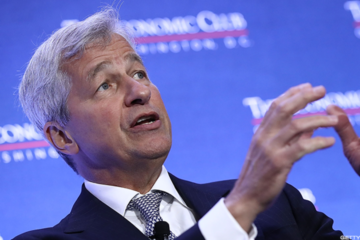Being at the repair shop or the service department at the local dealer is undoubtedly one of the worst aspects of car ownership.
Whether it is the huge chunk of the owner’s days wasted or the service bills that end up costing an arm and a leg, it is the price of keeping an old car running in perfect condition.
Related: You may be filling up your car with the wrong gas
Manufacturer warranties only cover what happens to vehicles for a relatively short amount of time, often leaving owners on the hook for expensive and time-consuming repairs.
Some companies, such as CarShield, attempt to sell car owners on warranties that last beyond the original manufacturers; however, a new settlement with the Federal Trade Commission shows that companies like these might be in it for just your money.
In a recent ruling, NRRM, LLC, which does business as CarShield and American Auto Shield, has agreed to pay the FTC a $10 million fine to settle charges of deceptive advertising of its aftermarket car warranties, or ‘Vehicle Service Contracts’ (VSC).
The government agency, in its report, says that CarShield, which describes itself as “America’s Most Trusted Auto Protection Company,” went far and beyond to make false promises regarding the extent of what their products offered and even used celebrity endorsements to push them on TV ads.
As per the FTC, CarShield subscribers paid up to $120 per month for their “warranties,” which were, in essence, as good as no warranty at all.
“For many consumers, a personal vehicle is one of their most valuable assets and a vital lifeline for getting to work, taking their kids to school, and obtaining medical care. Instead of delivering the ‘peace of mind’ promised by its advertisements, CarShield left many consumers with a financial headache,” Samuel Levine, Director of the FTC’s Bureau of Consumer Protection said in a statement.
“Worse still, CarShield used trusted personalities to deliver its empty promises. The FTC will hold advertisers accountable for using false or deceptive claims to exploit consumers’ financial anxieties.”
Related: Tesla has a problem attracting ‘normal’ EV buyers to its cars
Celebrity bait-and-switch
These ads featured celebrities like hip-hop legend and “Law & Order: SVU” star Ice-T and actress Vivica A. Fox, as well as former WWE superstar Ric Flair, which preyed on the average car owner’s feelings about expensive trips to the mechanic or service department.
“This stylin’, profilin’, limousine ridin’, wheelin’ dealin’ son of a gun is here to tell you that CarShield administrators make sure that you don’t have to pay for expensive auto repairs,” Ric Flair said before belting his signature “Woooo!” in a 2021 CarShield ad.
According to the FTC, CarShield customers reported that none of the claims in the ads were true. They could not get their cars fixed at the repair facility of their choice, as many didn’t accept CarShield’s VSCs, and not all of their repairs were covered by CarShield. Additionally, Carshield customers who had denied claims did not receive a rental car, and even those who did were left footing the bill for their rentals.
More Automotive:
Hyundai pressured dealers to play dirty sales trick, lawsuit allegesFord CEO sends a stern warning for American car buyersAnalysts have a bleak outlook for car dealers after CDK cyberattack
Old cars still running
The FTC’s ruling comes at a time when car owners are holding onto their cars for much longer than they have before. According to data from S&P Global Mobility, the age of the average car, pickup truck and SUV in America in 2024 is 12.6 years, fueled by high prices of new models.
With 70% of vehicles on the road being six years old and older, mechanics have their hands full. Most vehicles on the road have lasted longer than most manufacturer warranties.
Fortunately, the FTC is banning CarShield from using the same sales tactics and requiring it and its sibling company, AAS, to alert any third-party marketer of the FTC’s ruling. The government agency will also monitor CarShield for up to 10 years to ensure it complies with its ruling.
CarShield was ordered to pay the FTC $10 million. The agency says it will use it to refund customers CarShield deceived and defrauded through its advertising.


